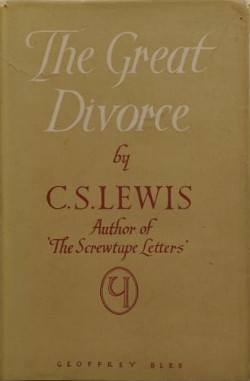
Kubla Khan: or A Vision in a Dream is a poem written by Samuel Taylor Coleridge, completed in 1797 and published in 1816. It is sometimes given the subtitles "A Vision in a Dream" and "A Fragment." According to Coleridge's preface to Kubla Khan, the poem was composed one night after he experienced an opium-influenced dream after reading a work describing Shangdu, the summer capital of the Mongol-led Yuan dynasty of China founded by Kublai Khan. Upon waking, he set about writing lines of poetry that came to him from the dream until he was interrupted by "a person on business from Porlock". The poem could not be completed according to its original 200–300 line plan as the interruption caused him to forget the lines. He left it unpublished and kept it for private readings for his friends until 1816 when, at the prompting of Lord Byron, it was published.

Robert Lee Frost was an American poet. His work was initially published in England before it was published in the United States. Known for his realistic depictions of rural life and his command of American colloquial speech, Frost frequently wrote about settings from rural life in New England in the early 20th century, using them to examine complex social and philosophical themes.

The Great Divorce is a novel by the British author C. S. Lewis, published in 1945, based on a theological dream vision of his in which he reflects on the Christian conceptions of Heaven and Hell.

Yggdrasil is an immense and central sacred tree in Norse cosmology. Around it exists all else, including the Nine Worlds.

A birch is a thin-leaved deciduous hardwood tree of the genus Betula, in the family Betulaceae, which also includes alders, hazels, and hornbeams. It is closely related to the beech-oak family Fagaceae. The genus Betula contains 30 to 60 known taxa of which 11 are on the IUCN 2011 Red List of Threatened Species. They are a typically rather short-lived pioneer species widespread in the Northern Hemisphere, particularly in northern areas of temperate climates and in boreal climates. Birch wood, the wood of the birch, is used for a wide range of purposes.

Wallace Stevens was an American modernist poet. He was born in Reading, Pennsylvania, educated at Harvard and then New York Law School, and spent most of his life working as an executive for an insurance company in Hartford, Connecticut. He won the Pulitzer Prize for Poetry for his Collected Poems in 1955.

A swing is a seat, often found at playgrounds for children, at a circus for acrobats, or on a porch for relaxing, although they may also be items of indoor furniture, such as the Latin American hammock or the Indian oonjal. The seat of a swing may be suspended from chains or ropes. Once a swing is in motion, it continues to oscillate like a pendulum until external interference or drag brings it to a halt. Swing sets are very popular with children.

"Hymn to Intellectual Beauty" is a poem written by Percy Bysshe Shelley in 1816 and published in 1817.

Where the Sidewalk Ends is a 1974 children's poetry collection written and illustrated by Shel Silverstein. It was published by Harper and Row Publishers. The book's poems address common childhood concerns and also present fanciful stories and imaginative images. Silverstein's work is valued by people of all ages, primarily due to his skill in subtly communicating social implications through his simple language. Controversial because of profanity and theme of rebellion, the book was first banned in 1986 in many libraries and schools.

"Ode: Intimations of Immortality from Recollections of Early Childhood" is a poem by William Wordsworth, completed in 1804 and published in Poems, in Two Volumes (1807). The poem was completed in two parts, with the first four stanzas written among a series of poems composed in 1802 about childhood. The first part of the poem was completed on 27 March 1802 and a copy was provided to Wordsworth's friend and fellow poet, Samuel Taylor Coleridge, who responded with his own poem, "Dejection: An Ode", in April. The fourth stanza of the ode ends with a question, and Wordsworth was finally able to answer it with seven additional stanzas completed in early 1804. It was first printed as "Ode" in 1807, and it was not until 1815 that it was edited and reworked to the version that is currently known, "Ode: Intimations of Immortality".

Mont Blanc: Lines Written in the Vale of Chamouni is an ode by the Romantic poet Percy Bysshe Shelley. The poem was composed between 22 July and 29 August 1816 during Shelley's journey to the Chamonix Valley, and intended to reflect the scenery through which he travelled. "Mont Blanc" was first published in 1817 in Percy Shelley and Mary Shelley's History of a Six Weeks' Tour through a Part of France, Switzerland, Germany and Holland, which some scholars believe to use "Mont Blanc" as its culmination.
Religious Musings was composed by Samuel Taylor Coleridge in 1794 and finished by 1796. It is one of his first poems of critical merit and contains many of his early feelings about religion and politics.

The conversation poems are a group of at least eight poems composed by Samuel Taylor Coleridge (1772–1834) between 1795 and 1807. Each details a particular life experience which led to the poet's examination of nature and the role of poetry. They describe virtuous conduct and man's obligation to God, nature and society, and ask as if there is a place for simple appreciation of nature without having to actively dedicate one's life to altruism.
"This Lime-Tree Bower My Prison" is a poem written by Samuel Taylor Coleridge during 1797. The poem discusses a time in which Coleridge was forced to stay beneath a lime tree while his friends were able to enjoy the countryside. Within the poem, Coleridge is able to connect to his friend's experience and enjoy nature through him, making the lime tree only a physical prison, not a mental one.
Frost at Midnight is a poem by Samuel Taylor Coleridge, written in February 1798. Part of the conversation poems, the poem discusses Coleridge's childhood experience in a negative manner and emphasizes the need to be raised in the countryside. The poem expresses hope that Coleridge's son, Hartley, would be able to experience a childhood that his father could not and become a true "child of nature". The view of nature within the poem has a strong Christian element in that Coleridge believed that nature represents a physical presence of God's word and that the poem is steeped in Coleridge's understanding of Neoplatonism. Frost at Midnight has been well received by critics, and is seen as the best of the conversation poems.
"Night" is a poem in the illuminated 1789 collection Songs of Innocence by William Blake, later incorporated into the larger compilation Songs of Innocence and of Experience. "Night" speaks about the coming of evil when darkness arrives, as angels protect and keep the sheep from the impending dangers.
"After Apple-Picking" is a poem by American poet Robert Frost. It was published in 1914 in North of Boston, Frost's second poetry collection. The poem, 42 lines in length, does not strictly follow a particular form, nor does it follow a standard rhyme scheme.

"The School Boy" is a 1789 poem by William Blake and published as a part of his poetry collection entitled Songs of Experience. These poems were later added with Blake's Songs of Innocence to create the entire collection entitled "Songs of Innocence and of Experience Shewing the Two Contrary States of the Human Soul". This collection included poems such as "The Tyger", "The Little Boy Lost", "Infant Joy" and "The Shepherd". These poems are illustrated with colorful artwork created by Blake first in 1789. The first printing in 1789 consisted of sixteen copies. None of the copies of Songs of Innocence are exactly alike as some of them are incomplete or were colored in posthumously "in imitation of" other copies.

Fifine at the Fair is a poem in Alexandrine couplets by Robert Browning, published in 1872.













